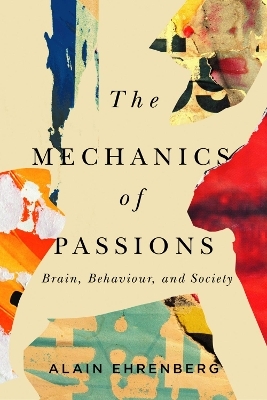
The Mechanics of Passion
Brain, Behaviour, and Society
Seiten
2020
McGill-Queen's University Press (Verlag)
978-0-2280-0342-7 (ISBN)
McGill-Queen's University Press (Verlag)
978-0-2280-0342-7 (ISBN)
Cognitive neuroscience, once a specialised area of psychology and biology, has enjoyed increased worldwide legitimacy in the last thirty years not only in psychiatry and mental health, but also in such fields as education, economics, marketing, and law. How can this surge in popularity be explained?
Cognitive neuroscience, once a specialized area of psychology and biology, has enjoyed increased worldwide legitimacy in the last thirty years not only in psychiatry and mental health, but also in fields as diverse as education, economics, marketing, and law. How can this surge in popularity be explained? Has the new science of human behaviour now become the barometer of our conduct and our lives, taking the place previously occupied by psychoanalysis? Rather than asking if neuronal man will replace social man or how to surmount the opposition between the biological and the social, The Mechanics of Passions uncovers hidden relationships between global social ideals and specialized concepts of neuroscience and cognitive science. Proposing a historical sociology situated in the dual contexts of the history of sciences and the history of self-representation, Alain Ehrenberg describes the conditions through which cognitive neuroscience has developed and acquired a strong moral authority in our individualistic society permeated by ideas, values, and norms of autonomy. Cognitive neuroscience offers the promise of turning personal limitations into assets by exploring an individual's "hidden potential." The Mechanics of Passions identifies this as the echo of social ideals of autonomy, affirming that the moral authority of cognitive neuroscience stems as much from cultural norms as from any results of scientific or medical experimentation.
Cognitive neuroscience, once a specialized area of psychology and biology, has enjoyed increased worldwide legitimacy in the last thirty years not only in psychiatry and mental health, but also in fields as diverse as education, economics, marketing, and law. How can this surge in popularity be explained? Has the new science of human behaviour now become the barometer of our conduct and our lives, taking the place previously occupied by psychoanalysis? Rather than asking if neuronal man will replace social man or how to surmount the opposition between the biological and the social, The Mechanics of Passions uncovers hidden relationships between global social ideals and specialized concepts of neuroscience and cognitive science. Proposing a historical sociology situated in the dual contexts of the history of sciences and the history of self-representation, Alain Ehrenberg describes the conditions through which cognitive neuroscience has developed and acquired a strong moral authority in our individualistic society permeated by ideas, values, and norms of autonomy. Cognitive neuroscience offers the promise of turning personal limitations into assets by exploring an individual's "hidden potential." The Mechanics of Passions identifies this as the echo of social ideals of autonomy, affirming that the moral authority of cognitive neuroscience stems as much from cultural norms as from any results of scientific or medical experimentation.
Alain Ehrenberg is a sociologist, the director of CESAMES (Research Center on Mental Health, Psychotropics and Society, Paris Descartes University), senior researcher at CNRS, and the author of several books on contemporary individualism.
| Erscheinungsdatum | 10.09.2020 |
|---|---|
| Verlagsort | Montreal |
| Sprache | englisch |
| Maße | 152 x 229 mm |
| Themenwelt | Geisteswissenschaften ► Psychologie |
| Naturwissenschaften ► Biologie ► Humanbiologie | |
| Naturwissenschaften ► Biologie ► Zoologie | |
| Sozialwissenschaften ► Soziologie | |
| ISBN-10 | 0-2280-0342-3 / 0228003423 |
| ISBN-13 | 978-0-2280-0342-7 / 9780228003427 |
| Zustand | Neuware |
| Informationen gemäß Produktsicherheitsverordnung (GPSR) | |
| Haben Sie eine Frage zum Produkt? |
Mehr entdecken
aus dem Bereich
aus dem Bereich
Wie Myrmecophile mit ihren Wirten interagieren
Buch | Softcover (2023)
Springer (Verlag)
69,99 €
produktiv sein ohne Stress – und mehr vom Leben haben
Buch | Softcover (2023)
dtv Verlagsgesellschaft
18,00 €
23 Techniken, um Stress abzubauen, Negativspiralen zu unterbrechen …
Buch | Softcover (2023)
FinanzBuch Verlag
18,00 €


